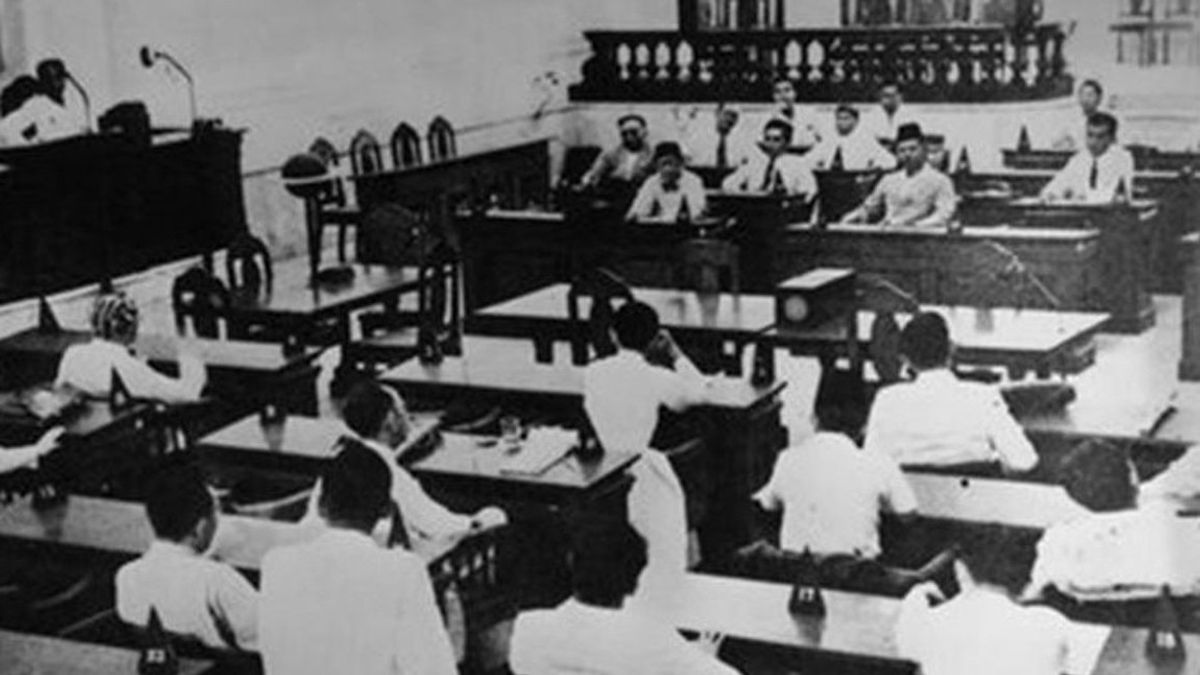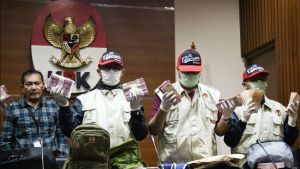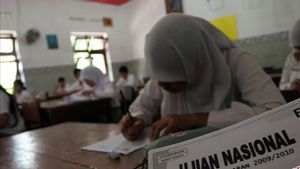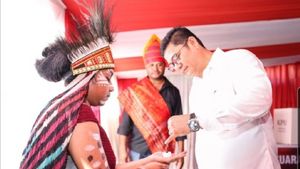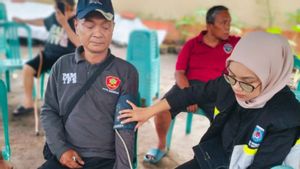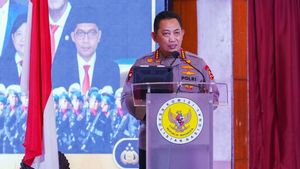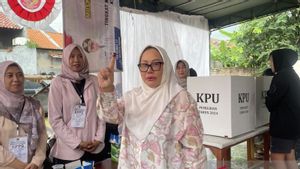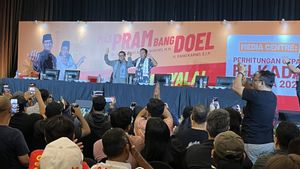JAKARTA - The birthday of Pancasila is set on June 1, 1945. The determination is based on Presidential Decree (Keppres) Number 24 of 2016. What is the history of Pancasila's Birthday? What happened behind it? What is the preparation of the precepts in Pancasila like?
Mohammad Hatta, the first Vice President of Indonesia to explain the history of Pancasila's Birthday in his will to Guntur Soekarnoputra. The will began with Bung Hatta telling the story of the Chairman of the Investigation Agency for Preparatory Efforts for Indonesian Independence (BPUPKI) dr. Radjiman Wedyodiningrat. In Bung Hatta's story, dr. Radjiman questioned the basis of the Indonesian state.
“Near the end of May 1945, dr. Radjiman, chairman of the Committee for the Investigation of Indonesian Independence Efforts, opened the Committee session by asking the meeting a question: "The independent state of Indonesia that we are going to build, what is the basis?" Bung Hatta wrote, quoted by Kompas, March 15, 1980 edition.

Most of the meeting participants were reluctant to answer dr. Radjiman. They do not want to create a prolonged philosophical debate. But not with Sukarno. He answered dr. Radjiman in a speech on June 1, 1945. In that speech Bung Karno explained the five precepts that underlie Indonesian independence: Pancasila.
Bung Hatta told Guntur who was Soekarno and Fatmawati's first child that the Proclaimer made a speech that moved all members of the committee. The speech was met with loud applause. "After that, the session appointed a Small Committee to reformulate the Pancasila as spoken by Bung Karno," Bung Hatta wrote in a will signed on June 16, 1978.
Fiddling with Pancasila itemsThe Small Committee consisted of nine people: Soekarno, Mohammad Hatta, HA Salim, Ahmad Soebardjo, Wahid Hasjim, AA Maramis, Muhammad Yamin, Abikusno Tjokrosoejoso, and Abdulkahar Muzakir. The Small Committee then tinkered with the composition of Pancasila.
They raise the item "Belief in One Supreme God" as the first precept. Tinkering with other Pancasila items was also carried out.
The amendment was then submitted by the Committee of Nine to the Investigating Committee for the Efforts of Indonesian Independence on June 22, 1945. The new formulation was given the name "Jakarta Charter", which was later used as the Preamble to the 1945 Constitution. Pancasila and the Constitution later became the main state documents.

The changes to the Bung Karno version of the Pancasila formulation, June 1, 1945 with the version of the Committee of Nine, August 18, 1945 are as follows:
Sukarno's version:
1. Indonesian Nationality
2. Internationalism or humanity
3. Consensus or democracy
4. Social welfare
5. God Almighty.
Committee of Nine Version:
1. God Almighty
2. Just and Civilized Humanity
3. Indonesian Union
4. Democracy Led by Wisdom of Wisdom in Representative Deliberations
5. Social Justice for All Indonesian People
Elimination of the word "Islamic law"Bung Hatta mentioned that there was a slight change in the formulation of the Committee of Nine. The change is the abolition of the phrase "with the obligation to carry out Islamic law for its residents" which was previously contained in the first precept.
The book Pancasila June 1 and Syariat Islam (2011) by Hamka Haq describes the precepts as the result of a compromise between two ideologies that emerged during the BPUPKI meeting: Islamic ideology and nationalism.

Ki Bagoes Hadikoesoemo, a speaker at the BPUPKI session from Islamic circles, said that Indonesia's independence cannot be separated from the struggle of Muslims. "There will be no Indonesian nation without Muslims," said Ki Bagoes Hadikoesoemo. The argument was criticized because it was judged to be based on the views of the Indonesian people based on demographics.
Indeed, Muslims in Indonesia reach 90 percent. However, if you look at the geographical conditions, that Indonesia is a group of islands stretching from Sabang to Merauke, the perspective will be different. Geographical basis is also believed to underlie basic state decisions cannot be based on certain religious values.
"Indeed, the seven words are only about the population who are Muslim. Christian leaders in eastern Indonesia object if the seven words are left alone, because they are written in the main points of the basic principles of our country, giving the impression as if they are distinguished by religious citizens. Islam and not Islam," Muhammad Hatta, in his will to Guruh.
*Read other information about HISTORY or read other interesting writings from Yudhistira Mahabharata.
Other MEMORIESThe English, Chinese, Japanese, Arabic, and French versions are automatically generated by the AI. So there may still be inaccuracies in translating, please always see Indonesian as our main language. (system supported by DigitalSiber.id)
